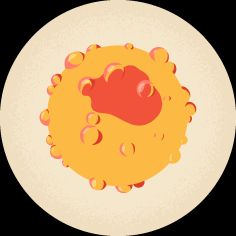Sweating may provide temporary relief from cold symptoms, but it won’t shorten the duration of your cold. Colds typically last 7–10 days.
Sweating out a cold is the idea that using heat, exercise, or things that can make us sweat makes a cold go away faster.
Sweat, or perspiration, is water that’s released from sweat glands in your skin. It’s your body’s way of cooling down.
When your body temperature rises, your nervous system sends a message to your sweat glands to secrete water onto your skin. When this water evaporates off of your skin, it causes a cooling effect.
Sweat is mostly made up of water. It also
While some of the methods used to “sweat out a cold” may provide temporary symptom relief, they don’t shorten the time that you’re sick. It normally takes
You can attempt to “sweat out a cold” using various methods, including:
- inhaling warm steam
- visiting a sauna or steam room
- exercise
These activities may temporarily relieve nasal congestion because they help to loosen nasal mucus. However, it’s the exposure to warm, moist air or physical activity, not the actual sweat, that’s beneficial in this case.
You may have heard that exposure to hot steam can help treat a cold. But does hot steam, such as what’s found in a hot shower or steam room, actually help?
A 2017 analysis of six trials found that being exposed to heated, humid air was neither harmful nor beneficial for people with the common cold.
Steam inhalation therapy may pose the risk of burning or scalding from steam or water that’s too hot.
There isn’t enough evidence to determine if a sauna can treat colds.
If you do decide to visit a sauna, try to follow the safety tips below:
- Limit your sauna time to about 15 or 20 minutes.
- Avoid food or drinks that can cause dehydration, such as alcohol, caffeine, or salty foods. You can lose up to a fair amount of sweat from just a short sauna.
- Rehydrate after your sauna by drinking two to four glasses of cool water.
- Cool down gradually after your sauna. Going directly from a hot sauna to a cold environment can put unnecessary stress on your body.
- If you feel unwell at any time during your sauna, leave and cool off.
- Do not use a sauna if you’re pregnant.
It’s fine to try to get a workout in if you have the common cold. Exercise can temporarily relieve cold symptoms such as nasal congestion.
That said, you should always take into account how you’re feeling. If you’re feeling pretty bad, you should just take a day off. You also shouldn’t exercise if your symptoms include fever, congestion in your chest, or cough.
If you do choose to work out while sick, consider reducing the intensity or the length of your exercise. As always, you should remember to stay hydrated while working out.
Follow the
- Rest up! Your body needs to fight off the illness. Try to get between 8 and 10 hours of sleep each night.
- Stay hydrated. Not only does this help your body fight your infection, but it can also loosen mucus. Warm liquids such as tea or broth can help soothe a scratchy throat. Try to avoid items that can cause dehydration, such as caffeine, alcohol, and salty foods.
- Use over-the-counter (OTC) medications to help relieve symptoms. Decongestants, pain relievers, and expectorants can help keep your symptoms under control. Be sure to follow the correct dosing guidelines.
- Gargle with saltwater if you have a sore throat. This can help reduce pain and swelling.
- Use a humidifier. Dry air can make your symptoms worse. Adding some moisture to the air can help keep your nasal passages moist and relieve congestion.
You may have heard that it’s beneficial to “sweat out a cold.” While exposure to heated air or exercise may help temporarily relieve symptoms, there’s little evidence to suggest that they can help treat a cold.
You’re best off fighting your cold by getting plenty of rest, staying hydrated, and taking OTC medications to relieve your symptoms. Your cold should resolve itself within 7 to 10 days.



